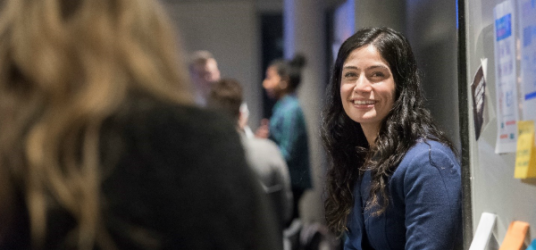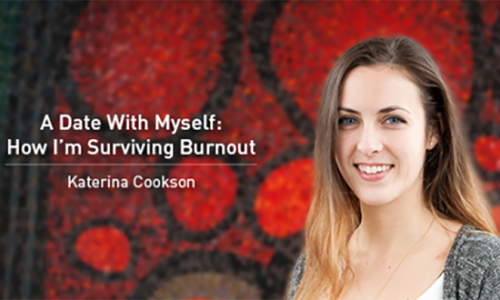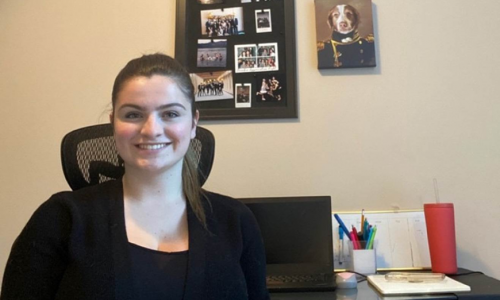
As students who are trying desperately to balance their own sanity while passing their courses, how can we adapt to this fast changing world?
I recently attended an event called “Building Your Resilience” hosted by SFU Public Square’s 2018 Community Summit. The event was facilitated by Alisa Stanton from SFU Health Promotion, a division of Health and Counselling, Deanne Esdale from SFU Career and Volunteer Services, and students Belinda Aikenhead (a Health Peer) and Makshada Kowlessur (a Health Promotion Co-op Student). At the seminar, we tackled the problems university students face day to day, such as issues of health and wellness in relation to being a student and building a career.
I learned that there are many things that stop us from being motivated by our ultimate goal of a degree in our back pockets. One of the biggest factors is stress, which can affect our academic performance. Yet we are left unsure what we can do when we are faced with this stress, as there is no easy way to gain success and there will always be hurdles and road blocks along our paths.
One thing that can help during times of adversity is to be resilient, and this was encouraged throughout the event. Yet what does it even mean, to be resilient? Let’s break it down. Resilience is defined as a skill, something we must learn from, build upon, and grow with. Some key ways to build the skill of resilience include:
-
Making social connections
-
Asking for help
-
Moving towards your goals
-
Exercising self-awareness
-
Exercising self-compassion
-
Shifting Perspective
-
Taking care of your own well-being
Amid the list of strategies we talked about throughout the seminar, there was one key element which seemed to underlie the strategies discussed: one must have courage to take action. We must have courage to be able to take risks and jump into the unknown. We must be brave enough to actively create opportunities, make connections, and be proactive about taking care of ourselves.
Having courage to create our own life and career paths is not an easy thing to do. I think creating a path or taking action for one self is at times risky, too, as the current work environment can be competitive, and fulfilling university goals is a lot of pressure. There is a quote by Camus which says “To create today, is to create dangerously”, and I think this describes the dive into the unknown we can take to build resilience. Taking action in your life can allow you to be resilient in the face of adversity, and help you to overcome even the largest obstacles. Being resilient is kind of like a dare to be something more than what is expected.
My dare was changing my major. I started off my post-secondary degree in the Business program, but there was a nagging voice inside my head that was telling me I’ve actually always been passionate about literature. I stayed with Business for a while, trying to convince myself it would be easier for me to find a job with a Business degree, but that just increased my stress and hurt my performance in school. Getting a degree in something ‘safe’ isn’t bad, however, if you’re feeling like you are pursuing a degree just so you’re not bombarded with questions like ‘Oh, what are you going to do with that?’, is that a worthy goal? I personally struggled with whether or not I was capable enough to face people when they asked such questions. Yet, this is what challenged me and enabled me to grow. Decisions you make for yourself, such as my decision to change my degree, will ultimately build your resilience.
Being resilient is not something that will magically happen overnight; it is a constant learning curve. Taking action in your life can feel dangerous at times - to live creatively, to be different, to fight for things you care about. There will always be critics out there. It is helpful to have a reservoir we can draw courage from on bad days to keep moving forward, and we can create our reservoirs by being open to opportunities, and by creating a toolkit for ourselves which embeds resilience. Although there is risk in creating our own paths, I believe that facing this risk takes the bravery to do the things you love without guilt. And when life does happen, know that you have the courage and capacity to bounce back.
Beyond the Blog
-
Connect with SFU Health and Counselling Services.
-
Read President Petter’s article on Brave New Work.















